What Is Search.mycouponsxp.com?
Search.mycouponsxp.com is identified as a pesky browser hijacker that is often promoted via free programs downloaded from third parties. When you install freeware, search.mycouponsxp.com will be automatically available on your PC and make itself as your default homepage, startup page or new tab page.

Search.mycouponsxp.com is compatible with common used web browsers that include Internet Explorer, Google Chrome and Mozilla Firefox. Once your PC is entangled with this browser hijacker, you will find your browser’s default settings are modified without consent. After that, unreliable search results will be provided and the browser will be flooded with unwanted ads and sponsored links.
In a word, the longer search.mycouponsxp.com stays on your PC, the more troubles it will make. If you are unfortunate enough to have your web browser hijacked by this browser hijacker, it is advisable to get rid of it immediately once found.
How to Remove Search.mycouponsxp.com Easily and Efficiently?
The following passage is going to provide the step-by-step instruction on removing Search.mycouponsxp.com. Please read carefully and try to understand the removal guide below.
STEP 1: Remove Search.mycouponsxp.com Associated Program from Web Browsers
STEP 2: Remove Search.mycouponsxp.com with SpyHunter
STEP 3: Double Check by Using RegCure Pro
STEP 1: Remove Search.mycouponsxp.com Associated Program from Web Browsers
1. Stop Search.mycouponsxp.com associated running process in Windows Task Manager.
Press Ctrl+Shift+Esc together to open Windows Task Manager, click Processes tab, find its associated running process and click on it, then click the End Process button.
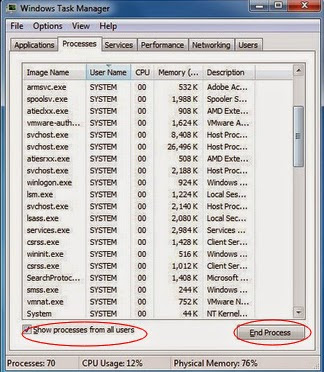
2. Uninstall Search.mycouponsxp.com associated program in Control Panel.
Click Start > Control Panel > Uninstall a program > find suspicious program and right click on it select Uninstall to uninstall the program.

3. Remove Search.mycouponsxp.com from web browsers.
Internet Explorer:
1) Click on the gear icon > "Manage Add-ons".
2) Unknown entries, locate and delete them.
3) You can change the home page, click the gear icon and choose "Internet Options".
4) Remove Search.mycouponsxp.com and enter your preferred domain name.
5) To change the default search engine, click on the gear icon, select "Manage Add-ons" > search engine
6) Place your favorite search engine.
Mozilla Firefox:
1) Click on the icon menu (top right) and select "Add-ons" > "Extensions".
2) Here select unknown Add-ons and select the trash can icon to delete these entries.
3) You can change the home page, click on "Firefox", select "Settings".
4) Remove Search.mycouponsxp.com and enter your favorite site.
5) You can change the default search engine by clicking on the menu icon and the question mark icon.
6) Here, you click on the "Fix" and click on "Restart Firefox".
Google Chrome:
1) Click on the icon menu (top right) and select "Tools" > "Extensions".
2) Select suspicious extensions and select the trash icon to delete these entries.
3) You can change the home page, click the "Settings" tab, go to "Search" and then click on "Manage search engines…".
4) Here, remove Search.mycouponsxp.com by clicking on the "X", enter your preferred site, and then click "Make Default".
4. Restart your computer to take effect.
STEP 2: Remove Search.mycouponsxp.com with SpyHunter
SpyHunter is a powerful, real-time anti-spyware application designed to assist the average computer user to detect, remove, and protect their PCs from the latest malware attacks. Here shows how it works:
2. Click the "Run" button to enter the setup program and follow the installation steps until setup is complete.

3. When the installation is complete, click the "Finish" button to exit the installation.
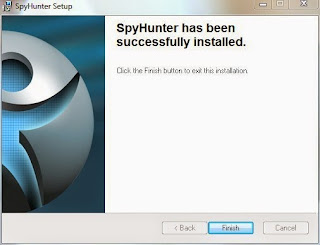
4. If SpyHunter does not automatically start, click the icon on your desktop or Start menu to open it.
5. Allow the program to scan by clicking the "Scan Computer Now!" button. If you would like to have a quick scan on your PC, please check the "Quick Scan" box; otherwise, uncheck it.
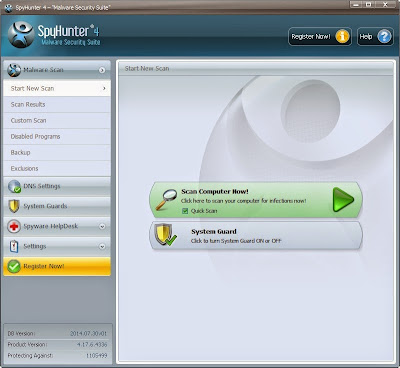
6. The first scan will take some time, please be patient while waiting for the scanning result.
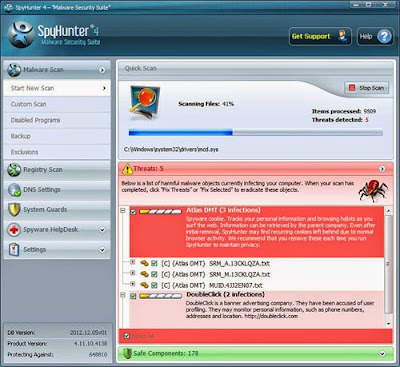
7. After the scan is done, you can see that all threats are successfully detected. Check the "Select All" box and then click the "Remove" button to fix all threats in your PC.
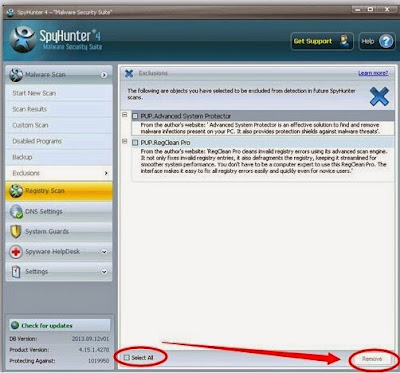
>>Click Here to Download SpyHunter to Protect Your PC from Malicious Threats!<<
STEP 3: Double Check by Using RegCure Pro
RegCure Pro is an advanced optimizer which is able to solve your computer system problems, remove your privacy items produced by online searches, delete junk files, uninstall malware and fix performance problems. Here shows how it works:
1. Free download RegCure Pro by clicking the below button.
2. Click the "Yes" button to enter in installation process and then follow the instruction to install the program step by step.
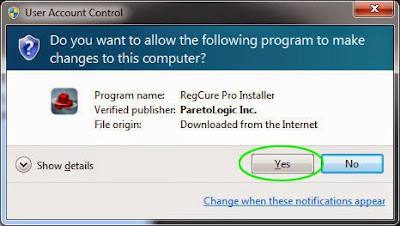
3. When the program is successfully installed, double click on its desktop shortcut to open it. On the Overview tab, check all the scan settings and then click on the "Click to Start Scan" button to run a system scan on your computer.
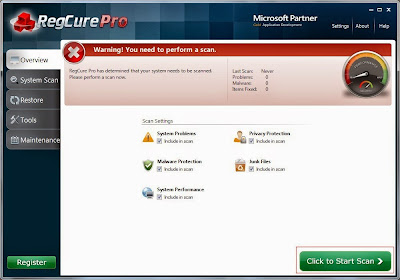
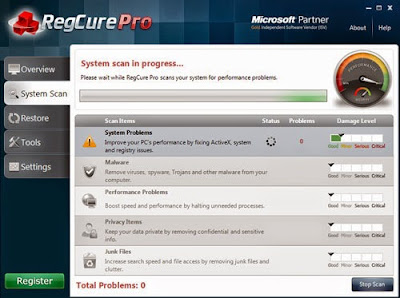
5. When the system scan is done, click on "Fix All" button to completely remove all the performance problems in your computer.
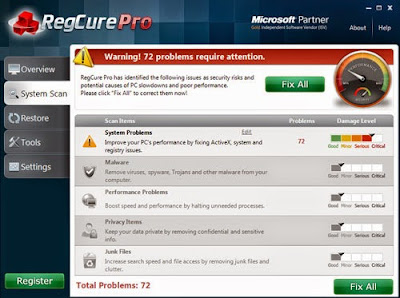
>> Click Here to Download RegCure Pro to Fix Slow PC Performance! <<
Good Luck and be safe online.

Note: SpyHunter's free version is only for malware detection. If SpyHunter detects malware on your PC, you will need to purchase SpyHunter's malware removal tool to remove the malware threats.




No comments:
Post a Comment